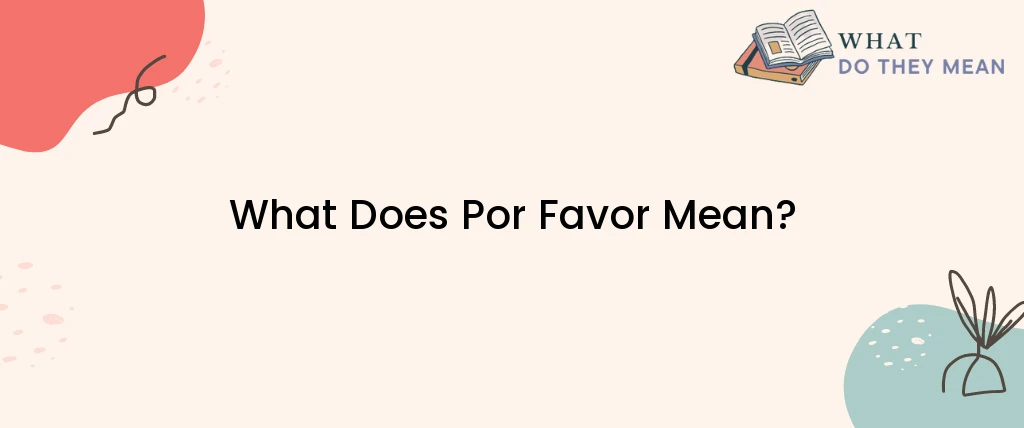“Por favor” is a Spanish phrase that translates to “please” in English. It is a polite expression used to make a request or ask for something in a courteous manner. For example, “Can you pass me the salt, please?” in Spanish would be “¿Me puedes pasar la sal, por favor?”
“Por favor” is a common phrase in the Spanish language, used to convey politeness and courtesy when making a request or asking for something. Its literal translation to English is “please,” but there are many nuances to its use that are important to understand for effective communication in Spanish-speaking environments.
Basic Definition
As mentioned, “por favor” means “please” in English. It is used to indicate that the speaker is making a request or asking for something in a polite and respectful way. It is an important phrase to know and use when speaking Spanish, as it is considered rude to make demands without using “por favor” or other polite expressions.
Contextual Meaning
While the basic definition of “por favor” is straightforward, its meaning can change depending on the context in which it is used. For example, the tone of voice and body language of the speaker can influence how the phrase is interpreted. In some cases, “por favor” can be used to convey urgency or importance, while in other cases it may be used more casually.
Usage Examples
To better understand how “por favor” is used in practice, here are a few common examples:
- “¿Podría darme un vaso de agua, por favor?” (Could you give me a glass of water, please?)
- “Por favor, háblame más despacio, no entiendo bien.” (Please speak more slowly, I don’t understand well.)
- “¿Me puede decir dónde está el baño, por favor?” (Can you tell me where the bathroom is, please?)
In each of these examples, “por favor” is used to indicate a request or ask for something, and it is used in a polite and respectful way.
Common Phrases with “Por Favor”
There are several common phrases in Spanish that include “por favor.” Here are a few examples:
- “Gracias, por favor” (Thank you, please)
- “Por favor, disculpe” (Please excuse me)
- “Por favor, repita” (Please repeat)
These phrases are useful to know as they can be used in a variety of situations to convey politeness and respect.
Alternatives to “Por Favor”
While “por favor” is the most common way to indicate politeness and respect when making a request in Spanish, there are other phrases that can be used as well. Here are a few examples:
- “Permiso” (Excuse me)
- “Disculpe” (Excuse me)
- “Con permiso” (With your permission)
These phrases can be used in different contexts, such as when asking to pass by someone in a crowded space or when requesting someone’s attention.
Conclusion
In conclusion, “por favor” is an important phrase to know and use when speaking Spanish, as it conveys politeness and respect when making a request or asking for something. While its literal translation is “please,” its meaning can change depending on the context and tone of the speaker. Knowing other common phrases and alternatives to “por favor” can also be useful for effective communication in Spanish-speaking environments.

As a researcher, I am curious and driven by the pursuit of knowledge. I approach my work with a critical eye, carefully evaluating sources and methods to ensure that my findings are accurate and reliable. Whether delving into scientific studies, historical records, or cutting-edge technologies, I am always seeking to expand my understanding and make new discoveries. I am dedicated to uncovering new insights and finding solutions to complex problems, and am driven by a passion for uncovering the truth.

